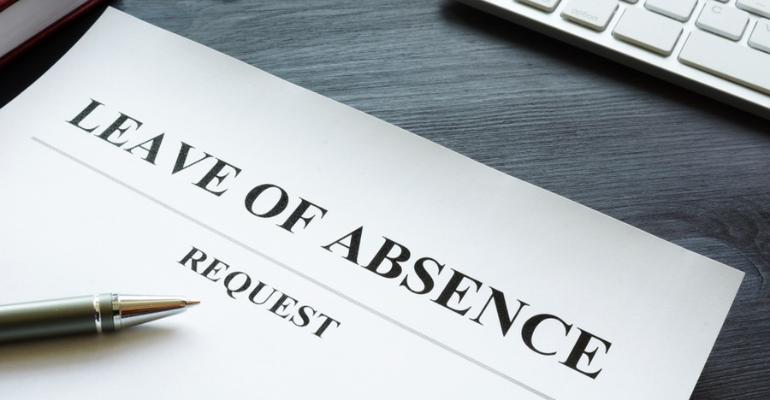
Can FMLA Be Extended Beyond 12 Weeks?
Can FMLA be extended beyond 12 weeks? If you are asking yourself this question, it is likely because you have reached the end of the leave granted to you by the Family Medical Leave Act (FMLA) and still need additional time. You may be exploring your options and considering whether it is possible to obtain more FMLA leave.
Extending a medical leave can be complex, as there is no set rule as to the amount of additional leave that an employer needs to provide, if any at all. In some, limited situations, you can take extended leave and be away from your employment longer than 12 consecutive weeks while enjoying the FMLA’s protections. Why does this matter? Because while on protected FMLA leave, you are entitled to certain rights and can take legal action if those rights are violated.
However, if you run out of FMLA leave, and do not return to work, you could face disciplinary actions up to and including termination.
Understanding FMLA’s Standard Provisions
The FMLA is a federal employment law that gives certain employees the right to take up to 12 weeks of unpaid, job-protected leave from their jobs. The leave is meant to allow employees to address circumstances like:
- Pregnancy and the birth of a new child
- Welcoming a new child into the home by adoption or foster placement
- Addressing a serious medical condition
- Caring for a family member with a serious medical condition
FMLA leave is only available to “covered” employees. A covered employee is one who works for an employer with at least 50 employees working within a 75-mile radius of one another. The employee must also have worked at least 1,250 hours in the previous 12 months before they can take FMLA leave.
Once you are eligible for FMLA leave, you can take up to 12 weeks of unpaid leave in 12 months, depending on the circumstances. While on leave, your employer must maintain your coverage under any group health plan on the same basis as coverage would have been provided if you had been continuously employed during the entire leave period, and may not demote you, reduce your salary, or terminate you because you are on FMLA leave.
When you return, the law requires that you be restored to your previous job position or an equivalent job. An “equivalent job” means a job that is virtually identical to the original job in terms of pay, benefits, and other employment terms and conditions (including shift and location).
Circumstances Under Which FMLA Can Be Extended
What if the standard 12-week FMLA leave period is not enough? Can you extend FMLA beyond 12 weeks? Despite FMLA’s general limitation to 12 weeks of protected leave within a 12-month period, you could get additional protected FMLA leave if the following, limited circumstances apply to you:
- The first situation is if your child, parent, spouse, or next of kin is a seriously injured or ill covered servicemember, and you are responsible for caring for them. FMLA leave for this purpose is called “military caregiver leave.” In this instance, you would be entitled to additional FMLA leave, which is above and beyond the standard 12 weeks and can be taken within the same one-year period. Military caregiver leave allows an eligible employee to take up to a total of 26 workweeks of unpaid leave during a single 12-month period.
- Second, if you take intermittent FMLA leave and commence a new 12-month period, you would be entitled to additional FMLA leave and would not technically be an extension of your FMLA leave; instead, you are using all the FMLA leave you are afforded under the law but spreading out your leave periods over time.
For example, imagine you are eligible for 12 weeks of FMLA leave each year on the first of January. During the year, you take one week of leave every month for treatments. You could continue to take one week of intermittent FMLA leave every month since you do not exceed 12 weeks of FMLA leave in 12 months.
Finally, nothing in the law prohibits your employer from voluntarily giving you additional non-FMLA protected leave if you exceed the 12 weeks. The FMLA only specifies the minimum leave period employers must grant — it does not limit the total amount of leave your company can give you. In fact, employees who are substantially limited in one or more major life activities due to a physical or mental impairment have rights under the Americans with Disabilities Act (ADA). One of these is the right to an accommodation (a change in the workplace policies, facilities, or how work is done). Leave can be one form of accommodation. Therefore, additional leave, beyond your FMLA leave, could be an accommodation that must be provided under the ADA.
How Long Can FMLA Be Extended?
If you care for a seriously injured or ill service member, you can take up to 26 weeks of FMLA leave within a single 12-month period.
In the case of taking intermittent FMLA leave, generally, you are entitled to continue to use up to 12 weeks of FMLA leave every year. You must understand when your employer resets the 12-month FMLA period to make the most of your leave. Some employers do this on the first day of every year, but your employer can choose another day.
Lastly, your employer can grant you as much additional non-FMLA protected leave time as it chooses.
However, the fact that your employer agrees to additional leave does not mean that you are entitled to FMLA’s protections. Nothing in the FMLA prevents employers from adopting leave policies more generous than those required by the FMLA. But an employer may not designate more than 12 weeks of leave—or more than 26 weeks of military caregiver leave—as FMLA-protected.
When FMLA Leave Is Not Extended

Unless you care for a seriously injured or ill covered servicemember or take intermittent FMLA leave that does not exceed 12 weeks in 12 months, your FMLA leave cannot be extended. In this scenario, failing to return to work when your FMLA leave has expired could result in your termination.
For example, imagine you have used all 12 weeks of your available FMLA leave and need additional time.
You are not caring for a covered servicemember, so your only option is to ask your employer for additional leave time. However, your employer denies your request and tells you that you must return to work. If you do not return, they are likely within their right to terminate your employment (unless you meet the ADA definition of a person with a disability and additional leave is a reasonable accommodation that would not cause your employer undue hardship).
What to Do if Your Rights Are Violated
If you are on FMLA leave and believe that your employer has interfered with your FMLA or retaliated against you, you have legal options. One is to file a claim with the Department of Labor, which could potentially lead to your employer having to pay fines and sanctions.
You could also file a private lawsuit against your employer and recover financial damages. Damages are intended to restore the harm you suffered as result of your employer’s non-compliance with the FMLA. For example, back pay, which is the salary and benefits you would have received if your employer had complied with the FMLA. If you were terminated, you could pursue an injunction requiring your employer to reinstate you to your previous job.
Prevailing in this legal environment requires proof that your employer took adverse action against you because you exercised your rights under the FMLA. Proving this is not as easy as it may sound, and swift action is key to ensuring you have the evidence to prove your claim.
Hiring a skilled Florida employment lawyer can provide you with the necessary resources to investigate and document your situation properly. Your attorney can gather emails, witness statements, and other documentation to establish whether your rights have been violated.
Speaking with an attorney is a good idea, even if you are unsure whether your rights were violated. If you wait too long to act, you may find that you missed the statute of limitations to file a lawsuit..
Speak With an Attorney in Florida
Can FMLA be extended beyond 12 consecutive weeks? The answer is yes if your reason for FMLA leave is to care for a seriously injured or ill covered service member—you can take up to 26 weeks of FMLA leave within a single 12-month period.
Otherwise, generally, granting additional leave is at the discretion of your employer and not protected by the FMLA. .
You can ask your employer for additional leave if you have used up your FMLA leave. But any extra time off is no longer protected by the FMLA. You may still have rights under the ADA if you meet the ADA definition of a person with a disability. For example, additional leave could be an accommodation that must be provided under the ADA.
Wenzel Fenton Cabassa’s team of experienced Florida FMLA lawyers is here to assist you if your employer has unlawfully discriminated or retaliated against you.
If you are entitled to receive extended FMLA leave and face repercussions, or if you ask for FMLA and are terminated or otherwise retaliated against, we can help you take legal action. Contact us today to discuss your case.
Please Note: At the time this article was written, the information contained within it was current based on the prevailing law at the time. Laws and precedents are subject to change, so this information may not be up to date. Always speak with a law firm regarding any legal situation to get the most current information available.








